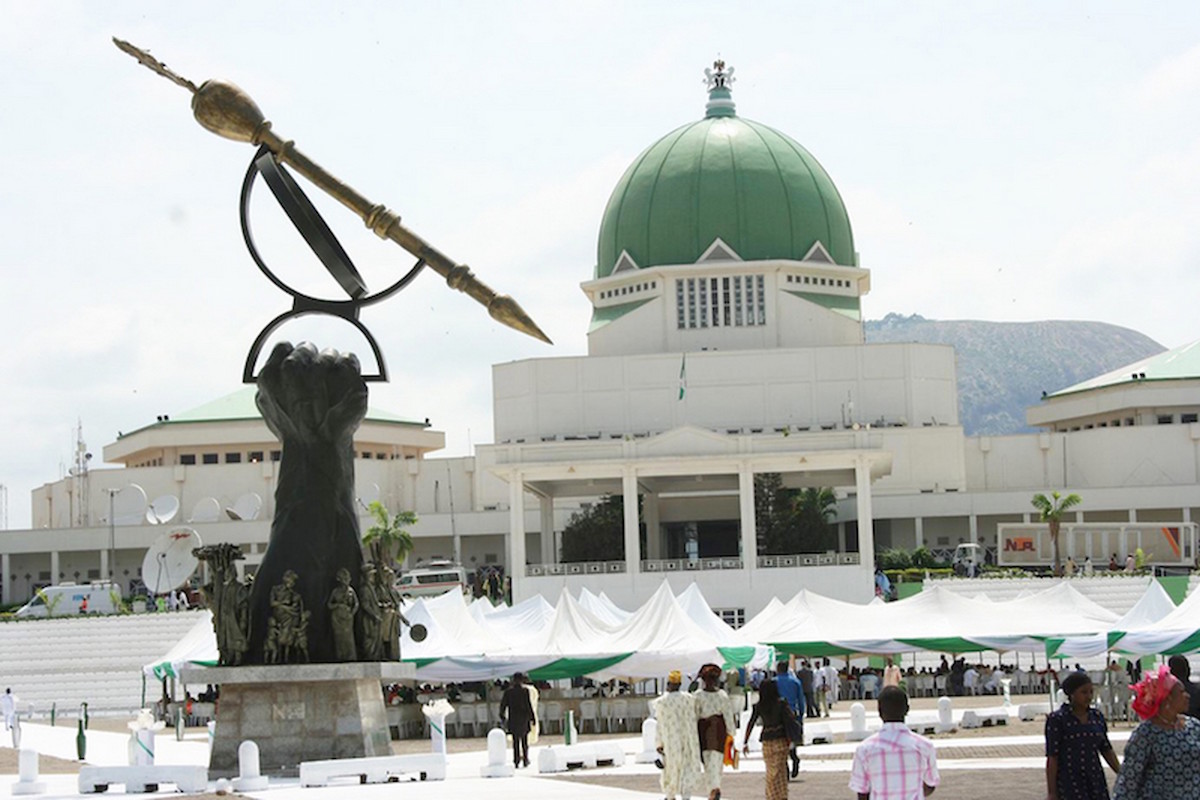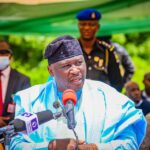An anthem uplifts, galvanises, bestirs and inspires. It summons our courage, patriotism, commitment and our best.
This explains why an anthem is often rendered before a national or group endeavour.
Nigeria’s anthems, the first one being Nigeria, We Hail Thee and the second one that replaced it in 1978, being, Arise, O Compatriots, seek to meet the above elevating benchmarks.
While the lyrics of Nigeria, We Hail Thee, written by Lillian Jean Williams in 1959, heralded our independence in 1960, the lyrics of Arise, O Compatriots were authored by five Nigerians, namely: John A. Ilechukwu, Eme Etim Akpan, B.A. Ogunnaike, Sota Omogui and P.O. Aderibigbe on the watch of General Olusegun Obasanjo, the then head of state. It was an amalgam of words and phrases taken from five of the best entries following a national contest.
It is instructive that the first anthem faced stiff opposition when it was created and its lyrics rendered into song/music by Frances Berda in 1959. The defunct Daily Service, an organ of the Egbe Omo Oduduwa, led the charge.
Much later, and in spite of its disparaging reference to our ethnic nationalities as “tribes” and “tongues”, the old anthem was to be preferred by some of our grandees. For instance, the late erudite Justice Chukwudifu Oputa wrote a number of treatises making a pitch for it and canvassing that Nigeria revert to the old anthem.
This nostalgia seems to have played out in favour of the old anthem two weeks ago. A bill seeking the country to revert to the old anthem passed the first, second and third readings within minutes in the House of Representatives. The bill received the same swift passage in the Senate last week. Rarely, in our annals, has a bill passed with such lightening speed.
Nigerians are flummoxed and bewildered at the alacrity with which this bill passed. Many Nigerians cannot fathom how a mere recourse to the old anthem can suddenly improve their weal or make their onerous challenges to vanish.
Most Nigerians wonder why the national anthem should pre-occupy the National Assembly at a time when hundreds of Nigerians are being abducted with abandon or killed outright by bandits on a daily basis.
These are the travails of woe and trauma that visit Zamfara, Katsina, Niger, Plateau and Borno states every day. As I write, not less than 3.3 million Nigerians are pinning away in internally displaced persons camps across the country. Millions of others have taken refuge in “safe” havens.
Many Nigerians wonder why members of the National Assembly should be obsessed with our reverting to the old national anthem at a time when inflation, as at 11:30am on May 15, 2024, stood at 33.69 per cent, and food inflation, which is also upward bound, is rated at 40.53 per cent.
Many Nigerians cannot understand why the country’s national anthem has become so pivotal as to dominate discussion at the National Assembly at a time when our schools, hospitals and roads are decrepit and millions of graduates are trudging the streets without jobs.
Nigeria’s out-of-school population accounts for 15 per cent of the global total. One in three of Nigerian children are out of school -10.2 million at the primary level and 1.8 million at the junior secondary school level, while 12.4 million never attended school, and 5.9 million deserted school early.
Nigerians cannot figure out why the national anthem should concern members of the National Assembly when the economy is in a terrible shape. The country continues to get burrowed in debt peonage. Its foreign reserves continue to shrink and plummet.
Multinationals continue to leave the country in droves. Investors such as TotalEnergies continue to shun us like plague.
By pre-occupying themselves with the national anthem in these dire and challenging times, it is clear that members of the National Assembly are out of kilter and out of joint with what ail Nigerians.
It is obvious that they have lost touch with the suffering, pains and destitution of their compatriots who they profess to represent.
As at now, 133 million Nigerians, representing 63 per cent of the population, are multi-dimensionally poor.
It is also crystal clear that they do not empathise with Nigerians. Neither do they care a hoot what becomes of us. If they did, they would have focused, like the laser beam, on the aforesaid challenges.
But come to think of it; why would they care? These are lawmakers who feed fat on the land. They are paid such mouth-watering salaries and allowances as to put them out of sync with Nigeria’s squalid reality. These are legislators who earlier showed undisguised preference for Sports Utility Vehicles (SUVs) manufactured abroad to the detriment of their home-made ones.
With sumptuous provisioning such as aforementioned, surely our legislators must live in some luxuriant extraterrestrial, devoid of the destitution faced by their countrymen and women. Little wonder, they can afford to amuse us with the circus they carried out in the past one to two weeks. Did Nero not fiddle while Rome burned?
Dazang is a former director at the Independent National Electoral Commission (INEC)

 Join Daily Trust WhatsApp Community For Quick Access To News and Happenings Around You.
Join Daily Trust WhatsApp Community For Quick Access To News and Happenings Around You.


